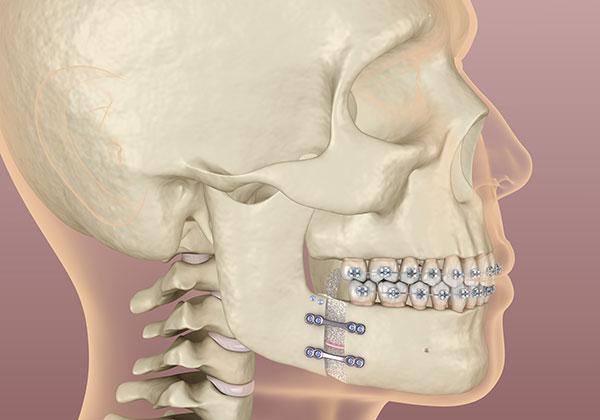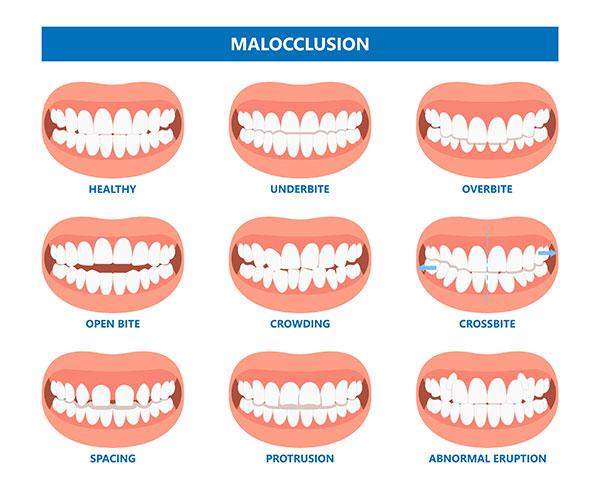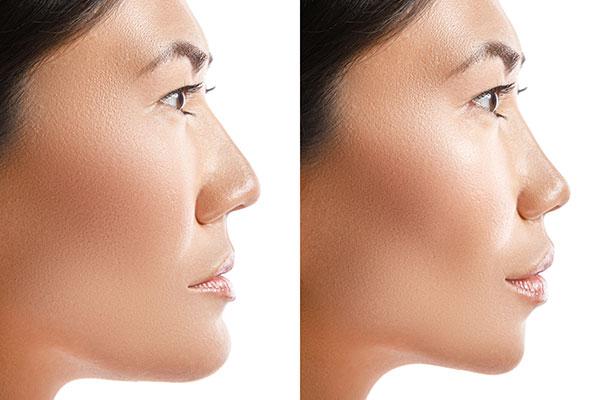 What is jaw reconstructive surgery?
What is jaw reconstructive surgery?
Jaw reconstructive or corrective surgery, better termed Orthognathic surgery, is a surgery to fix your upper (maxilla) and lower (mandible) jaw. These surgeries adjust, correct, and reconstruct any form of jaw irregularities. Severe orthodontic misalignments may also call for Orthognathic surgeries, as braces alone cannot fix these misalignments. Jaw reconstructive surgeries correct the defects and align the jawbone.
Typically, these surgeries are recommended for people with severe bite misalignments or defects left behind due to trauma or pathology. With the help of these surgeries, the jaw can be lengthened, shortened, or moved up or down. This results in a more harmonious bite, better vital functions, and improved facial appearance.
What are examples of jaw problems caused by injuries or medical conditions?
Orthognathic surgeries are needed when the jaws and teeth don't interact correctly. Overgrowth or undergrowth of the upper or lower jaw or both can lead to facial deformities, abnormal facial proportions, and a bad bite. Since these alignments are far more severe, braces alone cannot help. Surgery is undertaken to shift the jawbone into a more harmonious location, and orthognathic surgeries are carried out.
These misalignments are almost always genetically coded and become apparent as the child reaches puberty and even more prominent as the child reaches adulthood. Many congenital conditions, such as Pierre Robin Sequence, Treacher Collins Syndromes, Crouzan’s syndrome, facial cleft, cleft lip, and palate, can lead to jaw problems requiring reconstructive surgery.
Further trauma or injury may lead to a fracture of the jawbone, and in some cases, the fracture may be communited, which leads to the bone being crushed. In such cases, the jaw has to be reconstructed to establish function and aesthetics.
Cysts and tumors of the oral cavity which arise from the bone necessitate removal. Most often, their removal will be accompanied by the removal of teeth and an associated defect. These defects affect aesthetics and functionality. Jaw reconstruction becomes essential in such cases to establish functions such as chewing and speech and improve facial aesthetics.
 Who needs jaw reconstruction surgery?
Who needs jaw reconstruction surgery?
Jaw surgery can answer your troubles if you happen to be affected by one or more of the following conditions:
-
Individuals with a bad bite who face problems while chewing.
-
Kids with a problem with speech.
-
A facial bone fracture.
-
Open bite.
-
Facial asymmetry.
-
An overgrown or underdeveloped upper jaw or lower jaw which leads to disturbance in facial proportions.
-
Receding chin.
-
Individuals who are unable to open their mouths properly due to restrictive access.
-
Individuals that have a problem closing their lips completely.
-
Temporomandibular disorders
-
Genetic/birth defects
-
Obstructive sleep apnea.
Benefits of getting a jaw reconstruction surgery
Any mismatch between the upper and lower jaw will lead to problems with chewing and speech. In severe cases, it leads to a restricted airway and may lead to jaw-joint problems. The mismatch also compromises facial appearance, which further causes a dent in a person's confidence.
Teeth misalignments in severe cases cannot be treated unless the bone position is corrected surgically. In all these cases, jaw reconstruction surgery proves to be an indispensable procedure. It reestablishes proper functions while dramatically improving facial appearance. You will notice that your chewing and speech have improved, and you can breathe better.
What are the pros and cons of jaw reconstruction surgery?
 Pros of Corrective Jaw Surgery
Pros of Corrective Jaw Surgery
Jaw reconstructive surgery is a permanent solution for treating several kinds of teeth and jawbone misalignments. Once we correct and change the skeletal structure of the jawbone, orthodontic treatments will be able to align the teeth seamlessly.
Corrective jaw surgeries also give the patients a proper occlusion, thus improving chewing, swallowing, and speech. Occlusion refers to the relationship between the upper and lower teeth. It dictates the way upper and lower teeth and jaw align themselves. In an ideal situation, the upper teeth sit slightly in front of the lower teeth.
Corrective jaw surgeries save your teeth and jaw-joint from additional stress and damage. It also helps treat chronic jaw-joint pain, headaches, and sleep apnea. It will also correct the defect left behind after the removal of cysts and tumors. The added bonus is that it also improves your facial aesthetics, thus giving you a more attractive appearance.
Cons of Corrective Jaw Surgery
Every surgical procedure comes with some risk. Therefore, we plan everything intricately to ensure a seamless and uneventful surgery and a comfortable recovery. However, sometimes, complications may happen even after following all the protocols and doing all the right things.
-
One of the most significant disadvantages that accompany jaw reconstruction surgery is its cost. These surgeries are expensive as they require high dexterity and advanced surgical equipment.
-
You will still need braces to complete your treatment.
-
The entire process of reconstruction surgery is long and requires sincere follow-up and care.
-
For the initial few months, you will have to make modifications in your diet and lifestyle to heal better. You may be on a soft diet and would have to avoid strenuous physical activity.
-
The downtime is between 4 to 8 weeks. You may experience pain in the initial days. Therefore, painkillers are prescribed.
-
In some rare cases, patients experience numbness in the jaw post-surgery. This happens when the nerve gets injured or damaged during the surgery. Depending upon the severity and level of injury, you may experience numbness in the entire jaw or in a localized area. In some cases, the numbness may eventually go away once the nerve comes back to its usual form. However, in cases where the nerve has been damaged severely or has been cut, the numbness is permanent.
Is jaw reconstruction surgery worth it?
The cost of jaw reconstruction surgery in Phoenix may be high, but it is a permanent fix. The dramatic improvement in functionality and aesthetics that comes with jaw surgery makes it worth every penny. You can see the difference as soon as the swelling begins to go down. These changes are life-changing and are well worth the time and effort.
If you have any more questions or would like to schedule an appointment with Dr. Alexander Kim at Phoenix Oral & Facial Surgery, please reach out to us. Our team of excellent maxillofacial surgery professionals is here to assist you and your family in perfect health.

